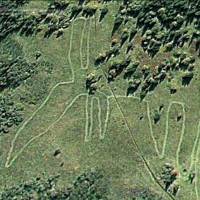SGU Episode 379: Difference between revisions
→This Day in Skepticism (0:31): Transcription |
m →Nobel Prize in Chemistry (2:48): Transcribing template |
||
| Line 138: | Line 138: | ||
=== Nobel Prize in Chemistry <small>(2:48)</small>=== | === Nobel Prize in Chemistry <small>(2:48)</small>=== | ||
* [http://www.nobelprize.org/nobel_prizes/lists/year/?year=2012 Nobel Prizes 2012] | * [http://www.nobelprize.org/nobel_prizes/lists/year/?year=2012 Nobel Prizes 2012] | ||
{{transcribing | |||
|transcriber = AzrgExplorers | |||
}} | |||
=== DNA Half Life <small>(5:39)</small>=== | === DNA Half Life <small>(5:39)</small>=== | ||
Revision as of 00:19, 22 October 2012
| This is the transcript for the latest episode and it is not yet complete. Please help us complete it! Add a Transcribing template to the top of this episode before you start so that we don't duplicate your efforts. |
| This episode needs: transcription, time stamps, formatting, links, 'Today I Learned' list, categories, segment redirects. Please help out by contributing! |
How to Contribute |
| SGU Episode 379 |
|---|
| 20th October 2012 |
 |
| (brief caption for the episode icon) |
| Skeptical Rogues |
| S: Steven Novella |
B: Bob Novella |
R: Rebecca Watson |
J: Jay Novella |
E: Evan Bernstein |
| Guest |
JIS: Jamy Ian Swiss |
| Quote of the Week |
You can do magic with science, but you can't do science with magic." - |
Erica Dunning (Brian Dunning's daughter) |
| Links |
| Download Podcast |
| SGU Podcast archive |
| Forum Discussion |
Introduction
You're listening to the Skeptics' Guide to the Universe, your escape to reality.
S: Hello and welcome to the Skeptics' Guide to the Universe. Today is Monday, October 15th, 2012, and this is your host, Steven Novella. Joining me this week are Bob Novella.
B: Hey, everybody.
S: Rebecca Watson.
R: Hello, everyone.
S: Jay Novella.
J: Hey, guys.
S: And Evan Bernstein.
E: Oh, good evening, my friends. How are all of you?
J: Good, what's up?
R: Super!
S: Quite well.
This Day in Skepticism (0:31)
- October 20, 1970: Norman Borlaug wins Nobel Peace prize for Green Revolution
R: So, the day that this podcast goes out, October 20th, marks a very important date in science history. So in 1970, a scientist received the Nobel Peace Prize. Can any of you guess who it was?
E: A scientist received the Nobel 'Peace' Prize.
S: Was that Linus Pauling, right?
R: Nope.
S: He got the Peace Prize.
R: Any other guesses?
J: I have no idea.
E: 1970.
J: Isaac Newton.
R: (laughs) They don't award them posthumously, so... no.
E: Yeah, right.
R: Okay, time is up.
E: (disappointed) Aww!
R: On October 20th, 1970, the Nobel Peace Prize went to Norman Borlaug.
E: Yes!
B: Oh!
R: For his contribution to the 'green revolution'...
B: Norman!
R: Which increased grain production throughout the third world. Yeah, he is responsible for possibly saving millions of lives.
B: Oh, how awesome is that? What a legacy!
E: Borlaug?
J: Cool!
R: Yeah, just for coming up with ways to grow crops that was more efficient, that produced more yields, particularly in Pakistan and India, during times when they had severe shortages of food, and even drops from the US weren't enough to protect people from starvation, so, yeah, his research went into saving many, many people. So, yeah, he has the Nobel Peace Prize, he has the Presidential Medal of Freedom, the Congressional Gold Medal, the Padma Vibhushan, India's second-highest civilian honor, and he's in the United States National Wrestling Hall of Fame!
B: Wrestling!? (laughs) What!? Didn't see that coming!
R: Yeah.
E: Wrestling with tough ideas!
J: What has he got? What'd he do?
R: He was a wrestler.
B: Oh my god!
R: I don't know, he was really into it.
B: What a Renaissance Man.
R: Yeah, in high school, apparently, he played several sports, but he was particularly into wrestling, and he was on the team at University of Minnesota. He was in the Big Ten semifinals, he introduced the sport to Minnesota high schools by putting on exhibition matches around the state. So, Wrestling Hall of Fame, in Stillwater, Oklahoma. Who knew?
J: That's awesome!
E: And the Peace Prize winner, cool!
R: Norman Borlaug.
S: And he lived to 95. It's a good run.
R: (agreeing) Mm-hm!
B: Oh, wow!
News Items
Nobel Prize in Chemistry (2:48)
| This section is in the middle of being transcribed by AzrgExplorers (talk) as of {{{date}}}. To help avoid duplication, please do not transcribe this section while this message is displayed. |
DNA Half Life (5:39)
Simulated Universe (12:15)
Supersonic Jump (27:41)
Russian Geoglyph (36:10)
Who's That Noisy? (41:38)
- Answer to last week: Hulda Clarke
Interview with Jamy Ian Swiss (44:37)
Science or Fiction (1:02:15)
S: Item number one. The 1926 Nobel Prize in Medicine was awarded to Johannes Fibiger for his discovery of "a cure for cancer." Item number two. The New York Times announced that the 1915 Nobel Prize in Physics was to be shared by Nikola Tesla and Thomas Edison, but they never received the award, it is rumored because neither man would consent to share the award with the other. And item number three. The 1949 Nobel Prize in Medicine was shared by Antonio Caetano de Abreu Freire Egas Moniz for the development of the frontal lobotomy.
Skeptical Quote of the Week (1:15:07)
You can do magic with science, but you can't do science with magic.
Erica Dunning (Brian Dunning's daughter)
References

|